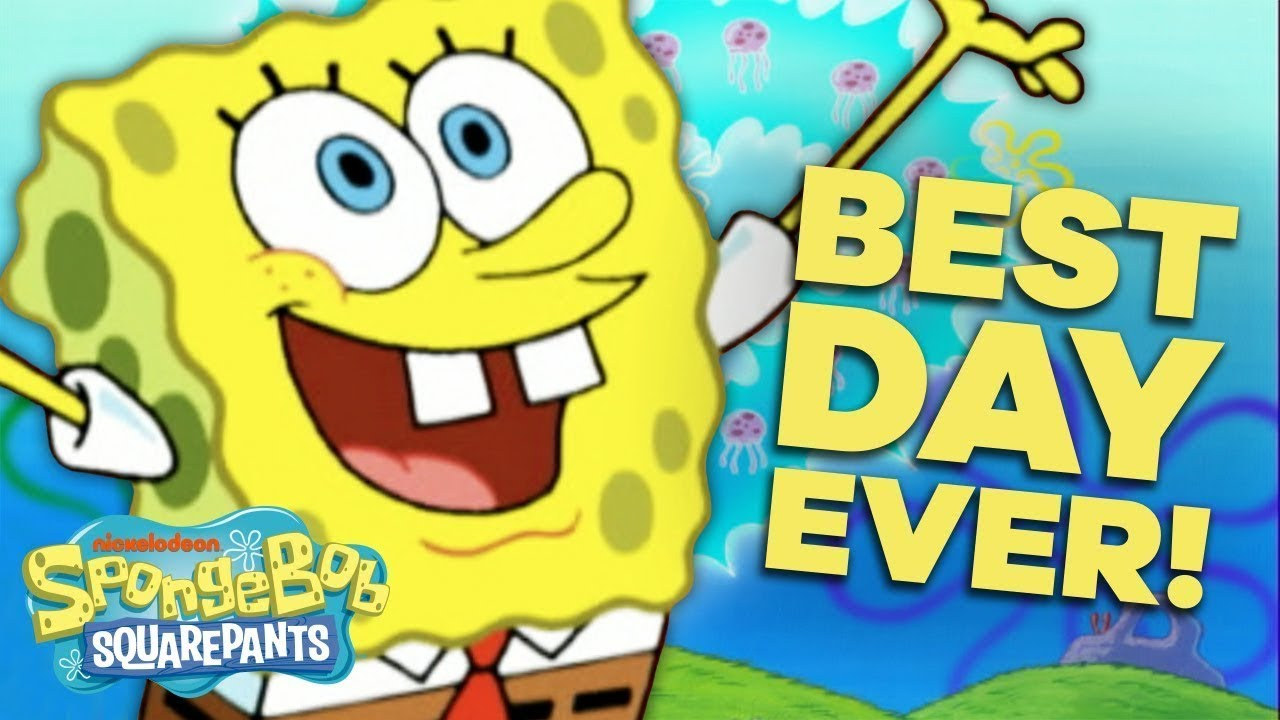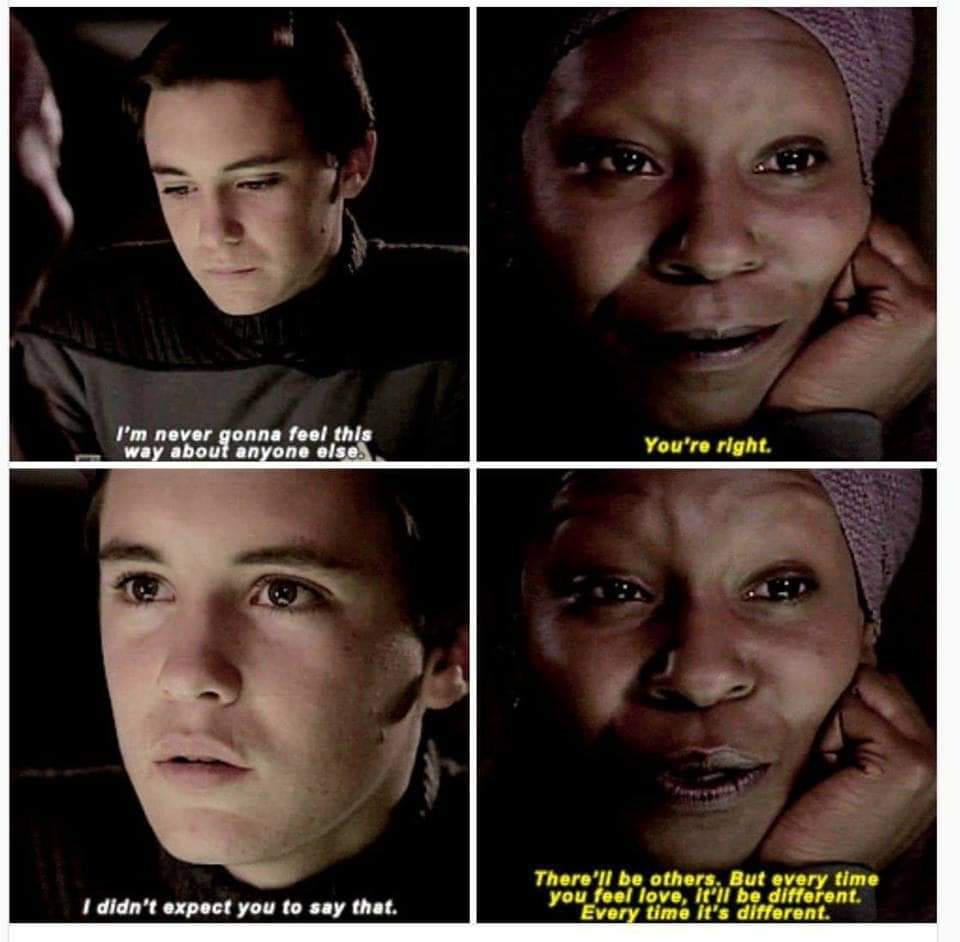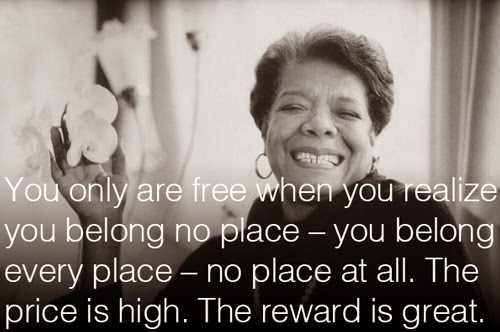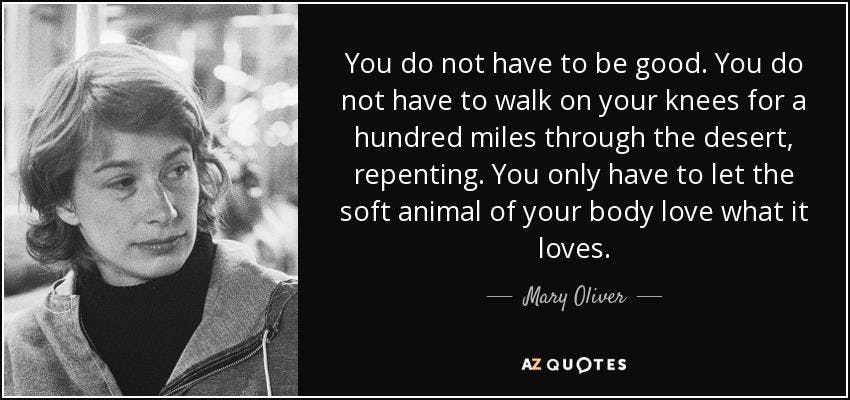Dear Art,
It is shortly after the celebration of Thanksgiving holiday here in the United States. It's a holiday that was founded on a false idea of togetherness that sought to erase some really bad things in US history, but what's been so reassuring is that I see a lot of friends are able to see some good come out of the holiday: a goal of merriment with friends of all beliefs and backgrounds in the coldest part of Winter. Perhaps, for many of my cosmopolitan friends in New York City especially, we've remixed Thanksgiving into our own holiday to represent the values of camaraderie that we so desperately need in these times, just as we are surfacing our understanding the new Omicron variant of COVID as we go into December.
I had some thoughts I wanted to visit for some time, and have only gotten the time to settle them down into some recognizable shape. Like you say, it feels like we're in times where thoughts and ideas and revelations seem to pour out of every conversation and interaction, digital and in-person, but for the sake of posterity, I want to capture at least some of the ones I've had over the past month before I write my next letter to you.
My first set of thoughts center around young people. My next set of thoughts center around Asian American-ness. My last set of thoughts center around doing good.
(Be warned, we're going to have quotes being thrown left and right.)
Firstly, my thoughts on young people.

"Best Day Ever!" image from Nickelodeon's Spongebob Squarepants, which echoes my cousin once-removed's declaration during Thanksgiving
This last month marks my shift in working life to education. As someone who admired the work of people like Mr. Rogers and Jim Henson, who placed such an emphasis on reaching and influencing young people, it seemed only proper for me to actually work with young people firsthand to see what they're like rather than read books about it.
And simply being around young people for a few weeks, I've already felt stirring in my soul to the memories, sounds, and textures of the mental landscape of being a young person again. What a wonder it is to view the world as so fresh and new! During Thanksgiving, my 5 year old cousin once-removed (my cousin's daughter) kept saying "This is the best day ever!" I can't be certain if it's something that kids just say because it's fun to say, or they saw it on a TV show like Spongebob. But part of me tries to remember what it was like to form memories as a 5 year old, and there were probably days where in maybe 2-3 years of conscious living, a simple Thanksgiving can truly be one of the best days of one's short life.
Another thought I've been delighting in pondering: are they 'young people'? Are they 'children'? Are they 'adults of the future'? 'Future thinkers and creators and doers' feels like it's already creating pressure. What vocabulary should we be using to describe people who are so new to this world? I see that young people themselves are whole people in their own right, even if adults can instinctively view them as lesser. But often, while they lack in developmental milestones and life experiences, they can often exhibit whole personalities that are unique and whole in their own right from a young age. We've often internalized the right for a person or entity to exist based on their utility to society, but I think maybe to reclaim young people's rights to exist for their own sake, I like to refer to them as 'young people.'
On another note, young people simultaneously give us hope, yet we are also the ones who must model for them and give them hope that there can be a better future. I hope I learn something new every day to be a good model for young people in the future, and create practices and expectations that encourage them to be clever, emotionally intelligent, and brave.
I like the quote "We do not inherit the land from our ancestors, but we borrow it from our children." I had first seen the quote in an exercise at an old job where we had to choose a quote from a selection of quotes set up on a vast array of tables, almost like how the Dalai Lama is said to be found when as a child, choosing his favorite toys from a vast selection of toys, presumably able to because he has memories from his past life. Apparently this particular quote is unclear in origin, as per Quote Investigator, but I still appreciate the elegance and sentiment of it, especially in times where we as a collection of generations are so consciously thinking about the future state we are leaving the planet in.
 Another thing I've noticed, which might sound like it goes without saying, is that young people are all completely different each time. I believe I heard a marine biologist on a podcast once say she couldn't eat meat after she saw that the face of every fish was individual and different, just like the face of every human was unique and personal.
Another thing I've noticed, which might sound like it goes without saying, is that young people are all completely different each time. I believe I heard a marine biologist on a podcast once say she couldn't eat meat after she saw that the face of every fish was individual and different, just like the face of every human was unique and personal.
Likewise, each child is born to a different family, and you can't reduce them to simplistic terms. And when I look at them, I can't help but be in amazement that every one of them is singular, individual, and special. There's also a meme I saw of Star Trek: The Next Generation that said love with someone is different every time.
And of course, there's the Mr. Rogers quote,
"You make each day a special day by just your being you. Everything you do is just a little bit different from everybody else. In that way, you've already won."
And of course, that's true for adults too, because every adult was once a child. There's no need to be perfect or some platonic ideal of human accomplishment, because there's no one way to be, each person is already perfect, like every fish, every animal, every plant, every leaf, every snowflake, and every blade of grass.
Additionally, on the topic of young people, as hopeful and kindhearted I try to be, I wrestle with all these cynical feelings around the world, how there's many days where it seems very difficult to have high hopes. But I see the students bright faces and think of their futures, and I can't face them with cynicism. I think of this quote by Hayao Miyazaki:
“Personally I am very pessimistic. But when, for instance, one of my staff has a baby you can't help but bless them for a good future. Because I can't tell that child, 'Oh, you shouldn't have come into this life.' And yet I know the world is heading in a bad direction. So with those conflicting thoughts in mind, I think about what kind of films I should be making.”
Another feeling that I'm unsure of how to address, but I feel I must talk about is a feeling of unmoored-ness around my Asian American identity. I've been wrestling with it quite a bit in the past several years, having an awakening moment in grad school, but I also am able to find myself forgetting what that means to me. And in my letters with you, Art, when I see you embrace your Andean heritage, I stand in admiration. You seem to embrace your cultural identity so warmly, whereas I am confronted with my own touch starvation from my Asian American identity. Do I know it's there? Is it set aside unless I pick it up? When I call to it, will it say it loves me back? Where is it situated in my body? (If I were to place a bet, I think it'd probably be in my stomach.)
As a result, my ambivalent feelings towards my cultural identity has confounded my efforts to feel comfortable in any artistic expression of these feelings. Whatever efforts would be made in the immediate future would be messy, and lack full awareness, and I worry might be insulting to myself and others for reasons I can't articulate easily. So if you're wondering why I couldn't participate more in your Alt Salt celebration of Andean and Asian American heritage, that apprehension is a large part of that answer.
One thing that gives me comfort in my apprehension, is that I understand a lot of my feelings of my Asian American identity are relatable to others in the diaspora as well. And I think through living through this foggy haze of unknown territory, I will gradually live my way into the answers I seek, and I hope that will guide others in their journeys as well. I suppose what I want to say is, where I walk, I know I do not walk alone.
For Asian Americans, it feels as if we each exist as separate islands, unmoored to a continent or culture, either of Asia or America... We don't know what we look like. We see ourselves as we are seen by others in media. Sometimes we can spend most of our lives not even seeing ourselves as Asian. (My cousin's daughter told her that she thought they spoke Spanish at home... Oof.) Asian Americans float around, half blending into our assimilated identities in our new world, half losing our place in a homeland, lost in a foggy mirror. We can seem like foreigners to each other or even ourselves.
And it's strange, even though I feel it's more pronounced in Asian Americans in some ways, I think that's the state of affairs for all Americans to some degree. To note, not Asian Americans, but Americans. Part of the process of coming to America, as a nation of immigrants, is that one has to lose that attachment to a homeland and become unmoored in one's identity, to fit in with the others in our new collective homeland. We each must strike out a new place for ourselves, and carve ourselves a home out of whatever shelter we can, with our own bare hands if necessary. Through coming here, we all have gone through the trauma of losing part of our ancestry and cultural identity, whether in our immediate families or our ancestors. And that's true whether we're people of color, or if we're white. On some level, we're all a bunch of kids with insecure identities trying to fit in at a lunch table which wants to displace us.
We think of the United States as a large country on a single body of land, but really, America is an archipelago nation of 300 million islands. A nation of nations. A collection of people who look at themselves with foggy mirrors.
And now, I sense it in the air, there are cultural forces are at work tectonically shifting underneath Asian Americans, and we find ourselves looking to see where our feet are rooted.

But I think the richness of American identity can be found in our collective understanding that we can all share a place at the table. Like my friends who shared their Thanksgiving tables with other friends in New York City. America is a nation that can gain something from each of us and share it with each other and the rest of the world. That's one of the places I see a wealth of hope in America. I already quoted it last letter, but I realize it's resonating once again, that these words by the poet Maya Angelou speak to a deeper understanding that all people have in America:
“You only are free when you realize you belong no place — you belong every place — no place at all.” - Maya Angelou
Lastly, I have recently been mulling over doing good after some prompts this month.
The definition of what good is is not a concern to me. I spent a lot of time in undergrad learning about ethics and moral philosophy (and being in my professors' office hours!) and my general conclusions were straightforward: We all must encourage each other's pleasure, limit each other's pain, and do so as sustainably as possible. So that's easy. But when I think about how to do good, I get discouraged since it's felt recently that live in a world where hope, truth, and justice have been in recession for some time.
My therapist gave me an assignment to mull over what I enjoyed in life that was something I enjoyed for its own sake rather than something I am doing for explicit or implicit external validation. A huge assignment! We acquire so many layers of rationality and ego and societal expectation to protect ourselves that I think any adult barely understands why they do half the things they do. Understanding why we act the way we act is a challenge for maybe two or more lifetimes!
That being said, I still took the assignment seriously and have been mulling over the idea of being good and being perfect. In 15.15 of the Analects, Confucius says "If a person is not in the habit of asking, 'What is this? What is this?' then I cannot do anything for him."
Basically, Confucius can't teach anyone who isn't willing to ask questions, so it's kind of a good place to be. You can't expect yourself to improve if you aren't always asking yourself how you can do better. There's definitely insufferable people we all meet who instantly know the answer to all questions without thinking things through! And oftentimes, the most learned people in a field are much less certain about the validity of truth than people who have a rudimentary understanding of the field. That's the Dunning Kruger Effect at work, after all. If anything, believing you know 100% what the right thing to do is as an individual, is the voice of one's inner tyrant, who demands to be listened to. That is all to say, that short of thinking ourselves into a dangerous maddening loop, asking ourselves how to do better and better is part of a healthy orientation towards good and just living. And it often gets better in concert with our peers and their own guidance and stories.
There is also the saying "Perfect is the enemy of the good". This has served me well to quell the anxious paralyzing part of my mind that tries to anticipate every single possible future and try to prepare for all the catastrophic events that seem to be right around every corner. It cuts through and reassures me that, "hey, just do something good, not perfect, and leave the rest up to fate."
However, maybe there is one most resonant take on doing good that does the best job cutting through all the rational mind and practical aspects of creating solutions that's been helping me recently. It comes from the poem Wild Geese by Mary Oliver, which goes:
“You do not have to be good...You only have to let the soft animal of your body love what it loves."
I've also been exploring a lot of vocabulary around being an artist, and I think that doing good in the world seems to have a lot of similar vocabulary.
 As an artist, you need to let your work live and breathe and be released from you. I will be one of the first people to tell you, in games I've made, spending one, two, or three years, there's a half life in which the game will eat at your insides, telling you to get it made. Reflections at Sunset demanded I get released by one October and after two years of development, it was released. 'Released' is a great word for that sensation. It wasn't perfect, after being 'released' from the weight of the game, my spirit felt lighter, and the game probably felt relieved as well. A similar thing happened for Confessions of an NPC. Art will be like that. And as Elizabeth Gilbert says in Big Magic, if you don't answer the call, then the art will stop knocking at your door, and perhaps fly to someone else in the world.
As an artist, you need to let your work live and breathe and be released from you. I will be one of the first people to tell you, in games I've made, spending one, two, or three years, there's a half life in which the game will eat at your insides, telling you to get it made. Reflections at Sunset demanded I get released by one October and after two years of development, it was released. 'Released' is a great word for that sensation. It wasn't perfect, after being 'released' from the weight of the game, my spirit felt lighter, and the game probably felt relieved as well. A similar thing happened for Confessions of an NPC. Art will be like that. And as Elizabeth Gilbert says in Big Magic, if you don't answer the call, then the art will stop knocking at your door, and perhaps fly to someone else in the world.
Ultimately, I've been working to attune myself to the quiet voice inside me that knows what it wants after I'm able to settle down all the other noise in my spirit. Improving one's life is being able to constantly peel away all the factors that create noise in our spirit, like feeding our stomach when it distracts us, feeding our mind when we need thoughts, feeding our social animal when we feel lonely, being in a peaceful environment when things have been noisy, and hopefully eventually being able to ask ourselves the questions that have been rapping at our soul for years and answering the call. Part of the work of being an artist and being a human being is knowing how to listen to when the quiet parts of your spirit are pulling at you to go one way in life, to see what lies on the horizon, and not stop walking til you get where you know you were meant to be getting to, tending to the restless inner fire. If we are unable to do so, then there will be dire consequences in our internal worlds and eventually our physical being.
However, if we are able to consistently answer the call from within, attune ourselves to its needs more and more over time, like soothing a frustrated fearful child, eventually we might be able to practice our way into a state of being where our actions are mostly in line with our desires. One of my Eastern Philosophy professor's favorite lines from the Analects (that he probably told me during his office hours) goes:
"At fifteen, I had my mind bent on learning. "At thirty, I stood firm. "At forty, I had no doubts. "At fifty, I knew the decrees of Heaven. "At sixty, my ear was an obedient organ for the reception of truth. "At seventy, I could follow what my heart desired, without transgressing what was right."
I do feel I'm starting to see that progress in my life now. And I hope that I can help others in their journey, no matter their age or race or background. We are all valid and special and I hope to continue my work in reminding myself and others of essential truths like these.
I hope to hear from you soon during this winter season. Stay warm and many blessings.



